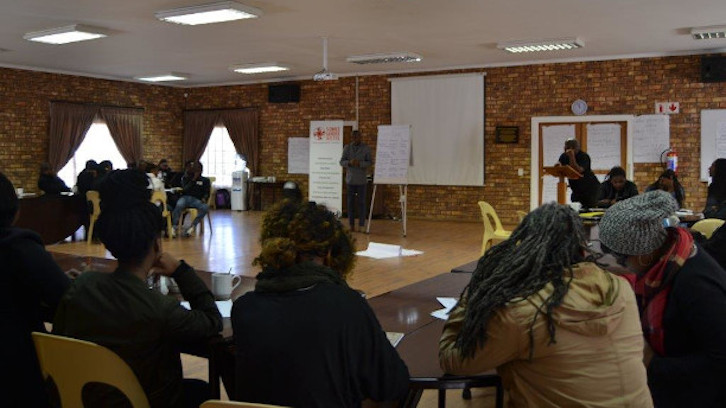Between words and silence: spaces for gender role transformation in Africa's religious communities

Gender justice can be controversial in different contexts shaped by religion and culture. This article dives into the complexities of this issue, focusing on the personal stories of African religious community leaders who participate in workshops to prevent sexual and gender-based violence. By promoting open dialogue, inequalities can be analyzed and worked through to achieve positive change towards the common goal of equality.
Nowadays, there is increasing talk about gender equality and the importance of preventing sexual and gender-based violence. As such, it is critical to understand how different groups approach these issues, especially in the context of religious communities, which are often the subject of controversy.
This article dives into the complexities of this issue, focusing on the personal stories of religious community leaders who participate in workshops to prevent sexual and gender-based violence in different parts of Africa. These workshops are organized by various African NGOs and bring together religious leaders such as pastors, imams and chaplains, as well as religious educators, to discuss issues such as toxic masculinity, reproductive health, gender diversity and human rights in religious contexts. This globally innovative approach seeks to avoid extremist discourse and promote dialogue around a common goal: the gender justice.
Specifically, our case study focuses on the Sonke Gender Justice organization located in South Africa, which, in collaboration with Men Engage Africa, designs and implements such workshops with the support of several local organizations on the continent.
The main idea of the article is to discover how people who participate in these workshops change the way they see and think about gender roles and stereotypes in environments marked by religion and culture. In addition, the study delves into the tensions and agreements that arise when men and women discuss gender inequalities in their own lives. These tensions are influenced by a set of emotions that include learning to express themselves, listening to new perspectives, and sometimes remaining silent about feelings. In other words, we see how religious leaders, both men and women, of different faiths share their experiences and difficulties in dealing with sexual and gender-based violence, but also how they try to change that reality.
The process of transformation, as we show in the article, involves addressing the challenges people face in dealing with sexual and gender-based violence in their personal lives, whether in the church, in the family, in romantic relationships or in the community at large.
This work is an essential contribution to the ongoing dialogue on how to change unequal gender perceptions and roles in religious communities. It offers us rare insight into the complex histories that shape these conversations. It shows us that, within the context of faith, people struggle with deeply held beliefs and traditions as they work toward positive change toward equality. The study points out that there is no single solution to addressing gender inequality and preventing sexual and gender-based violence in faith communities. However, it highlights the importance of fostering inclusion, listening, open dialogue, and a willingness to address difficult questions of such complex realities.
Dr. Rafael Cazarin
Department of Sociology
Autonomous University of Barcelona
rafael.cazarin@uab.cat
Dr. Andrés Dávila
Department of Sociology
University of the Basque Country
andres.davila@ehu.eus
References
Cazarin, R., & Davila, A. (2023). Entre el hablar y el silencio: la transformación de roles de género en espacios de activismo religioso-secular. Disparidades. Revista De Antropología, 78(1), e006. https://doi.org/10.3989/dra.2023.006

